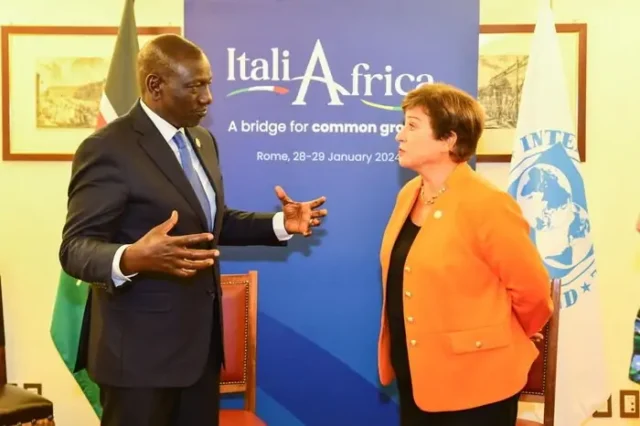
Kenya’s fiscal landscape has taken a severe hit, with global credit ratings agency S&P downgrading the country’s sovereign credit rating from “B” to “B-“. This marks the third such downgrade since June, following similar actions by Fitch and Moody’s.
The downgrading decision points to the financial challenges facing Kenya, raising significant concerns about the country’s future economic stability and debt management.
The ratings cut is a direct response to President William Ruto’s decision to abandon the Finance Bill, which aimed to generate Ksh346 billion through new taxes. This move followed widespread protests that saw over 61 people lose their lives, highlighting the mounting public unrest and social pressure the government faces in its efforts to consolidate its fiscal position.
S&P’s downgrade indicates a growing scepticism about Kenya’s ability to stabilise its economy in the medium term. “The downgrade reflects our view that Kenya’s medium-term fiscal and debt outlook will deteriorate following the government’s decision to rescind all tax measures proposed under the 2024/2025 Finance Bill,” S&P stated in its release.
This rating cut follows similar moves by other agencies. Fitch Ratings downgraded Kenya’s sovereign rating to “B-“ earlier in August, while Moody’s downgraded the country’s credit further into junk status in July.
The downgrades have put Kenya under intense international scrutiny, raising alarms about the government’s fiscal management and its capacity to service its substantial debt load.
In the face of these challenges, S&P has kept a “stable” outlook for Kenya, suggesting that the nation’s strong economic growth and continued access to concessional external financing could balance the pressures from high interest costs and slow fiscal consolidation.
However, this is a thin silver lining in an otherwise cloudy economic forecast.
The downgrade is likely to have serious repercussions for Kenya’s borrowing costs. Lower credit ratings typically translate into higher interest rates for borrowing, complicating the government’s efforts to finance its budget deficit.
This comes at a time when the government has revised its budget for the 2024/25 financial year, cutting spending and increasing its local borrowing target to cover the wider fiscal deficit.
Kenya’s economic woes are further exacerbated by its heavy reliance on external financing, particularly from institutions like the International Monetary Fund (IMF) and the World Bank.
The IMF is expected to meet next month to approve a $600 million disbursement under Kenya’s $3.6 billion lending programme, which expires next year. However, the recent downgrades and the scrapped tax plan may complicate Kenya’s relationship with these vital creditors.
Despite the government’s efforts to mitigate the situation, including a revised budget that scales back spending, the outlook remains grim. The discarded tax measures were a key component of the IMF-supported programme aimed at addressing Kenya’s fiscal imbalances.
The backtracking on these measures has not only led to credit downgrades but has also cast doubt on the government’s commitment to fiscal discipline.
The downgrades by S&P, Fitch, and Moody’s collectively paint a picture of a nation on the brink of a fiscal crisis. With rising borrowing costs and a limited capacity to introduce new revenue measures, Kenya’s path to economic recovery appears increasingly uncertain.
The country’s debt burden, already heavy, could become unsustainable if current trends continue, forcing the government to make difficult choices that could have lasting impacts on its economy and its people.
The situation is further complicated by Kenya’s structurally large external imbalances, which remain a key vulnerability according to S&P. While immediate external liquidity pressures have eased somewhat, the long-term challenges are far from resolved.
The government’s reliance on concessional financing might offer temporary relief, but it is not a long-term solution to the deep-seated fiscal issues that Kenya faces.
Read the Original article on https://www.kenyans.co.ke/








